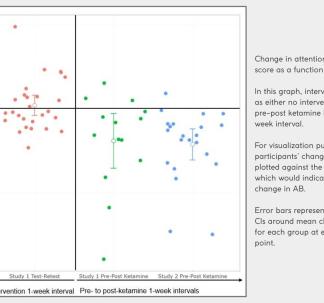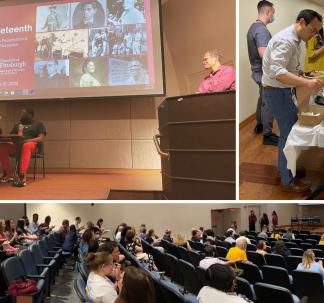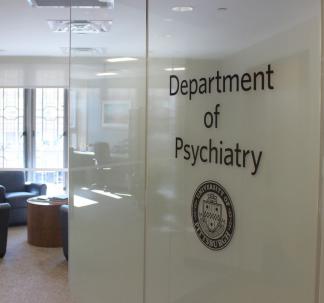Neil P Jones, PhD
Associate Professor of Psychiatry and Psychology
Contact Details
3811 O'Hara St.
Pittsburgh
PA
15213
Email jonesnp@upmc.edu
Education & Training
PhD
Clinical Psychology, Duke University, Trinity College of Arts and Sciences
Clinical Psychology, Western Psychiatric Institute and Clinic of UPMC
Neuropsychiatric Symptoms of Pediatric Physical Illness, University of Pittsburgh School of Medicine
Affective Neuroscience, University of Pittsburgh
Professional Affiliations
Member, American Psychological Association
Member, Association for Behavioral and Cognitive Therapies
Research Interests
Emotion and cognition interactions; Stress and anxiety; Reward and cognition interactions
Selected Research Publications & Products- Gupta, T, Karim HT, Jones NP, Ferrarelli F, Nance M, Taylor SF, Rogers D, Pogue AM, Seah THS, Phillips, ML, Ryan ND, Forbes EE. Continuous theta burst stimulation to dorsomedial prefrontal cortex in young adults with depression: Changes in resting frontostriatal functional connectivity relevant to positive mood. Behaviour Research and Therapy,2024
- Ojha A, Jones NP, Henry T, Versace A, Gnagy EM, Joseph HM, Molina BS, Ladouceur CD. Altered lateral prefrontal cortex functioning during emotional interference resistance is associated with affect lability in adults with persisting symptoms of attention-deficit/hyperactivity disorder from childhood. Biol Psychiatry Cogn Neurosci Neuroimaging. 2024;9(6):588-96.
- Jones, N. P., Schlund, M., Kerestes, R., & Ladouceur, C. D. (2020). Emotional interference in early adolescence: Positive reinforcement modulates the behavioral and neural effects of negative emotional distracters. Cereb Cortex, 30(4), 2642-2657.
- Jones NP, Versace A, Lindstrom R, Wilson TK, Gnagy EM, Pelham Jr WE, Molina BSG, Ladouceur CD. Reduced activation in the pallidal-thalamic-motor pathway is associated with deficits in reward-modulated inhibitory control in adults with a history of attention-deficit/hyperactivity disorder. Biol Psychiatry Cogn Neurosci Neuroimaging. 2020;5(12):1123-33. autobiographical problem-solving deficits associated with rumination in depression. Journal of Affective Disorders, 218, 210-216.
- Jones, N. P., Chase, H. W., & Fournier, J. (2016). Brain mechanisms of anxiety's effects on cognitive control in major depressive disorder. Psychological Medicine, 46(11), 2397-2409.
Clinical Interests
Family therapy; CBT for mood & anxiety disorders
Education Interests
Biological statistics





